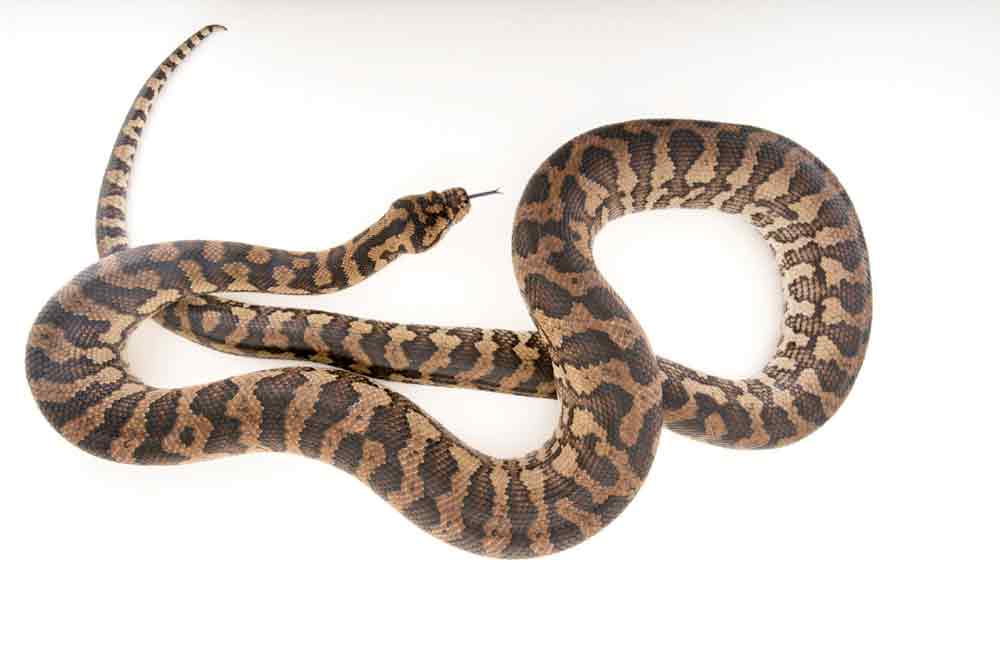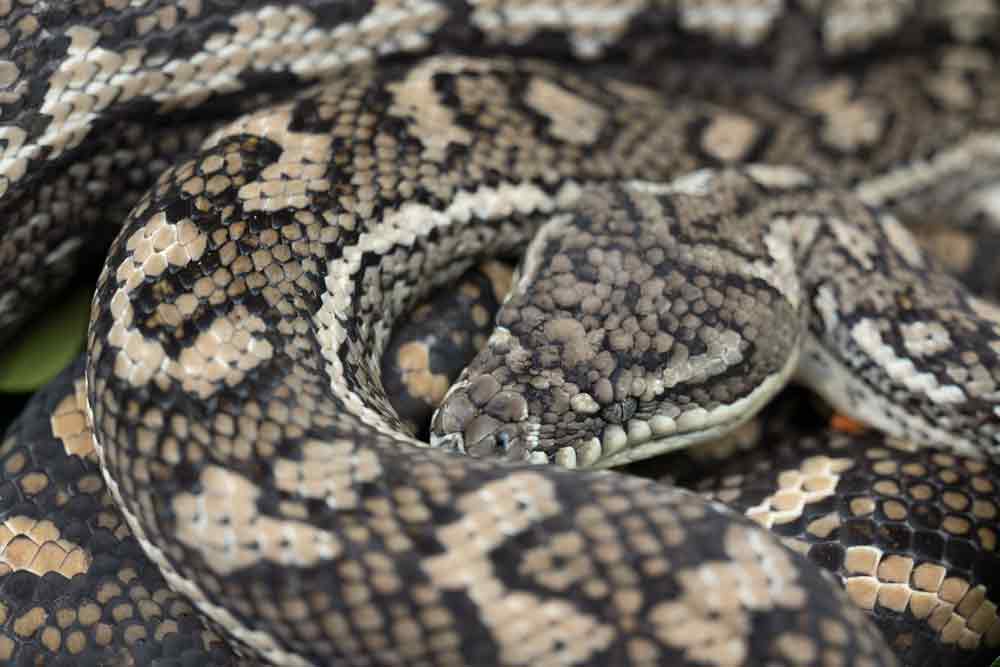The researchers believe that the woman, age 64, inadvertently consumed the eggs of Ophidascaris robertsi directly from the vegetation, or indirectly via contaminated hands or kitchen equipment.
Brain surgeons in Australia successfully removed a parasitic round worm, known as Ophidascaris robertsi, that had made its way into the woman’s body and was living in the woman’s brain. According to the study detailing the case, this is the first instance of Ophidascaris robertsi, which is commonly found in carpet pythons (Morelia spilota) using a human as a host.
According to the paper describing the surgery, which took place in 2022, the woman lived near a lake area that is a known ecosystem for carpet pythons. The woman had no direct contact with the snakes, but rather often collected native vegetation called warrigal greens (Tetragonia tetragonioides), around the lake, which she then consumed. The researchers believe that the woman, age 64, inadvertently consumed the eggs of Ophidascaris robertsi directly from the vegetation, or indirectly via contaminated hands or kitchen equipment. The paper notes that the woman’s clinical and radiologic progression shows “a dynamic process of larval migration to multiple organs, accompanied by eosinophilia in blood and tissues, indicative of visceral larva migrans syndrome.”

The coastal carpet python is a subspecies of Morelia spilotes. Photo by Dawn Photos/Shuttestock
In 2022, the woman experienced forgetfulness and a worsening depression while on medicines that were supposed to treat hepatic and splenic lesions on her brain. Subsequently, a brain MRI showed a 13 × 10 mm peripherally enhancing right frontal lobe lesion. In June 2022, the woman underwent an open biopsy, and the surgeons noticed a stringlike structure within the lesion measuring 80mm in length by 1 mm in diameter. When they removed the structure, they noticed that it was alive. They found no other evidence of a live round worm. They identified the worm as a third stage larva of Ophidascaris robertsi, based on its red coloration, “three active ascaridoid-like lips, presence of a cecum, and absence of a fully developed reproductive system.”
81-Year-Old Grandma Subdues Two Large Pythons Like A Boss
They found that the invasion of the woman’s brain by the round worm larvae is the first such report of an occurrence involving Ophidascaris robertsi and a human. They note that these parasitic nematodes are usually found in marsupials and other small animals. The carpet pythons eat marsupials and thus the cycle begins anew.
The complete paper, “Human Neural Larva Migrans Caused by Ophidascaris robertsi Ascarid” can be read on the Centers for Disease Control and Prevention website.



